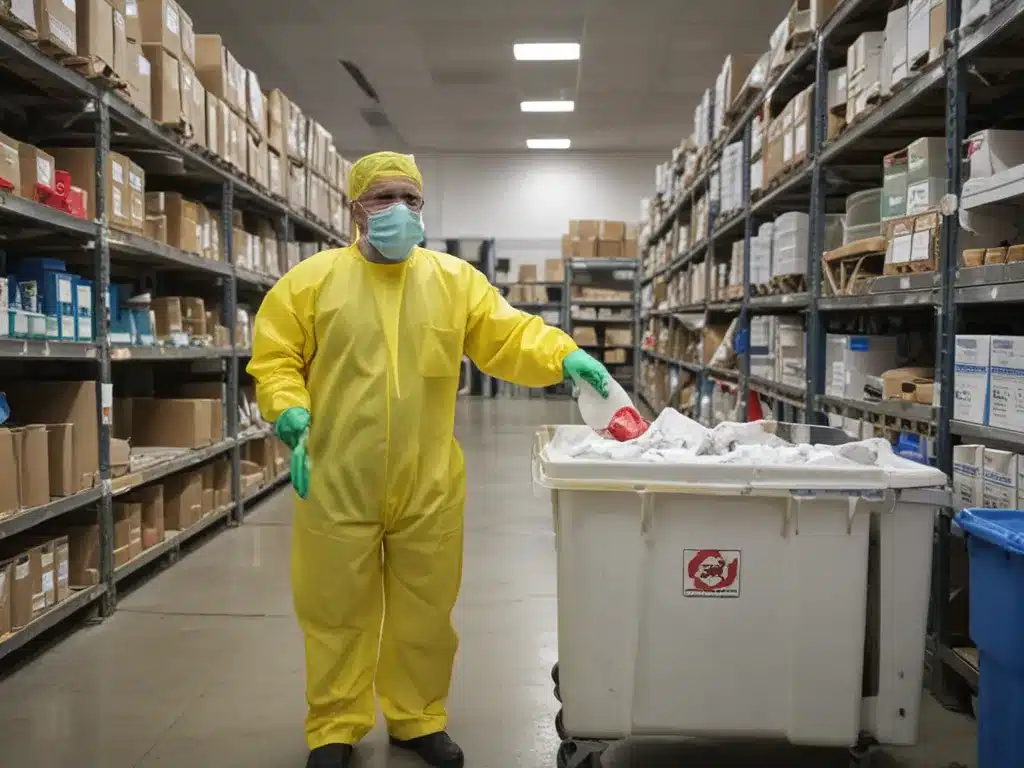What is Medical Waste?
Medical waste refers to any waste materials generated in the diagnosis, treatment, or immunization of human beings or animals. It includes a wide range of materials, such as:
-
Infectious waste – materials contaminated with blood, bodily fluids, or other potentially infectious substances. This includes items like blood-soaked bandages, discarded needles, cultures, stocks, swabs, or removed body organs.
-
Pathological waste – human tissues, organs, body parts, blood or body fluids, and carcasses.
-
Sharps – devices capable of cutting or piercing skin. This includes needles, scalpels, blades, or broken glassware.
-
Pharmaceutical waste – expired, unused, spilled, or contaminated drugs and vaccines.
-
Chemical waste – solvents, disinfectants, and reagents used in labs or to clean and disinfect medical equipment.
-
Radioactive waste – unused liquids from radiotherapy or lab research, contaminated glassware, papers, or equipment.
-
General waste – regular trash like packaging or leftover food from medical facilities.
Why Proper Disposal is Critical
Medical waste contains potentially hazardous materials that can infect people who handle it or pollute the environment if not disposed of properly. Some key risks include:
-
Spread of infection – Pathogens in medical waste can lead to diseases like HIV, hepatitis, or other illnesses if they come into contact with people. Needlestick injuries are a particular concern.
-
Toxicity – Chemicals or pharmaceuticals can be poisonous or have other dangerous effects on the body. Radioactive materials can cause radiation sickness.
-
Pollution – Improper disposal of medical waste can contaminate landfills and water supplies with chemicals, pharmaceutical residues, or radioactive materials.
That’s why adhering to proper medical waste disposal protocols is so important for the safety of healthcare workers, patients, waste handlers, and the public.
Segregating Medical Waste
The first step in safe disposal is to segregate medical waste from general trash. This helps avoid contamination and enables each waste type to be handled appropriately.
Some basic segregation guidelines include:
-
Using color-coded bins – Different bin colors are designated for infectious waste, sharps, pharmaceuticals, chemical or radioactive waste, etc.
-
Clear labeling – Bins should be clearly labeled with the waste type.
-
Close proximity – Bins for different waste streams should be readily accessible where the waste is generated.
-
Separate bags – Waste should be bagged separately prior to removal from the area.
-
Safe handling – Personal protective equipment like heavy-duty gloves should be used when handling waste bags.
Onsite Handling and Storage
Within healthcare facilities, medical waste needs to be handled and stored properly to avoid hazards. Some steps to follow:
-
Store waste away from patient areas. Use restricted access utility rooms or warehouses.
-
Refrigerate biological waste prior to treatment if storing more than a few days.
-
Protect sharps in puncture-proof containers. Seal when 3⁄4 full.
-
Label storage areas clearly with waste type and any hazards.
-
Limit storage times prior to disposal – no more than 30 days for untreated biological waste.
-
Follow strict safety protocols – personal protective equipment, washing hands, disinfecting surfaces, etc.
Treatment Methods Prior to Disposal
Depending on the waste type, some form of treatment is usually required to reduce hazards before materials can be disposed of. Common methods include:
-
Incineration – High temperature burning destroys pathogens in biological waste and reduces volume. Air emissions must be controlled.
-
Autoclaving – Pressurized steam treats waste using intense heat. Effectively disinfects without incineration.
-
Microwaving – Rapid oscillation of water molecules disinfects the waste load.
-
Chemical disinfection – Adding chemicals like bleach can disinfect liquid pharmaceuticals or biological waste.
-
Irradiation – Gamma irradiation from specialized equipment decontaminates biomedical waste.
Safe Disposal Methods
After proper segregation, containment, and treatment, medical waste will typically be disposed of via:
-
Sanitary sewer – For treated liquid waste like disinfected blood, pharmaceuticals, or chemicals.
-
Municipal landfill – For solid general medical waste that has been properly treated and rendered non-hazardous.
-
Hazardous waste landfill – For chemical, radioactive, or certain regulated solid wastes.
-
Incinerator – To reduce treated solid waste volume prior to disposal. Air emissions must be controlled.
Regulations and Guidelines
There are numerous international, federal, state, and local regulations pertaining to proper medical waste handling. Some key agencies and guidelines in the United States include:
-
EPA – Federal environmental regulations for medical waste incinerators, transporters, and generators.
-
DOT – Regulations for transporting medical waste.
-
OSHA – Worker exposure guidelines for the healthcare industry.
-
CDC – Waste management guidance for various waste types.
-
State policies – Additional state disposal and permitting requirements.
6 Steps for Safe Handling as a Healthcare Worker
As a healthcare worker, you play an important role in medical waste disposal safety. Follow these basic procedures:
-
Segregate waste properly at the source into the correct bins.
-
Use PPE like heavy-duty gloves when handling waste bags.
-
Label and store waste bags securely prior to collection.
-
Disinfect and wash hands thoroughly after handling waste.
-
Transport bagged waste directly to collection points.
-
Report any spills or protocol lapses immediately.
The proper disposal of medical waste is critical for infection control, environmental safety, and regulatory compliance. By understanding the hazards, following segregation and handling protocols, and utilizing approved treatment methods, we can ensure medical waste is disposed of in the safest manner possible. It takes diligence from healthcare workers, waste managers, and the public to make this successful.







